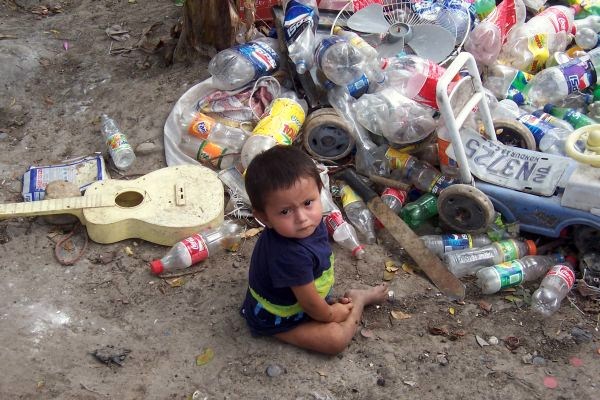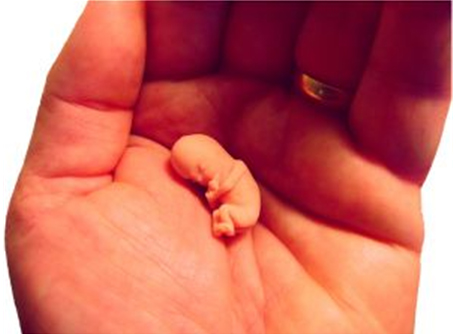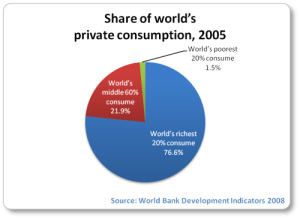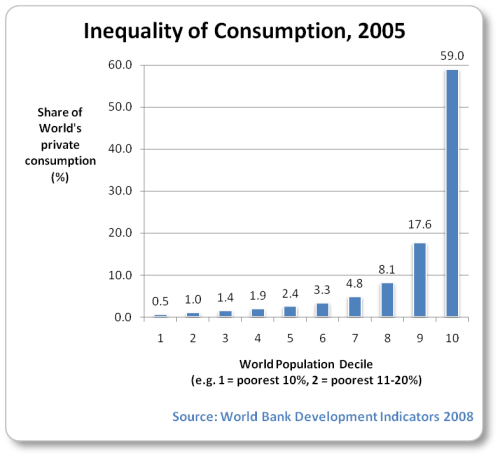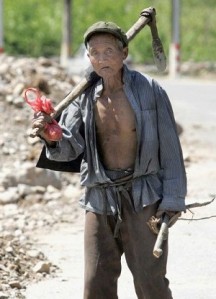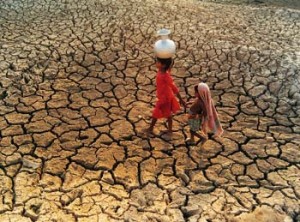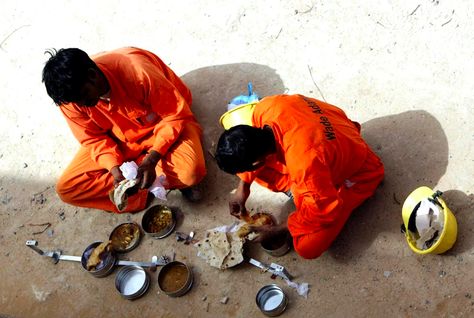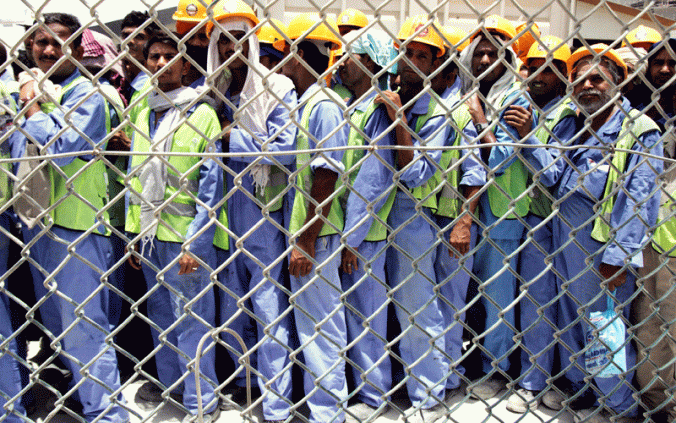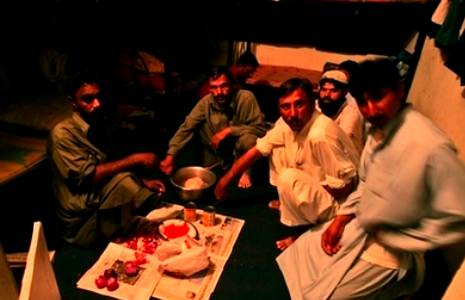A Critique on Contemporary Human Relationships: Coupledom, Cohabitation, Marriage & The Family
So you have decided to move in together. After going through the motions of dating, maybe an on again-off again pairing and finally deciding to stay together… after some time, you’d think, this is it.

If you’re the guy and you’ve given her a key to your apartment months ago… it seems quite natural to assume that the next step would be to ask her to move in with you. If you’re the girl and you already have the key to his place, you’re thinking: If he asks me to move in after some time, I probably should say “yes.” After all, moving in together is a prelude to the “real thing”, that is, marriage – the vision of marital bliss. 🙂
Hold that thought… and very quickly read this post.
Of the many aspects of my complicated life, one of the most troubling, I must say, is my inability to stay in a relationship. I am no commitment phobe, quite the reverse actually – and while I value my independence, I do like having a man around even just to hold me in the middle of the night, with or without words of comfort. And I do like to feel loved and needed by a total stranger with a totally different background and set of experiences from mine… who will further enrich the life I already have, and yet… the thing I earnestly have been searching for – that true & lasting relationship – has remained elusive so far.
I have never been wont to have one-night stands or flings or FWB types of associations [though I did try one of the three… with adverse consequences, hehehe :-)]. At first, it was more an act of despair… for I wanted to hold on to the relationship for as long as I could, in whatever way… then realized my folly before I let it destroy me completely.
But I am not going to continue ranting about my sentiments regarding my experiences… this entry is more about my desire to dispassionately analyze some of our most profound, all-consuming and life-changing human relationships: between two people (hetero- / homo- – though this will deal more about the former since am no authority on the latter, however, I will share whatever info I gleaned from research & experience in this post), marriage [and its (sometimes) dissolution] and the family in its various forms.
My discussion will not take into consideration alternative views / customs on courtship, marriage and family that have been in existence in cultural (ethnic) communities, though they may be mentioned in passing. The focus of this post will be on the “mainstream” traditional and contemporary norms regarding such life events.
However, in this discourse, you will come across real life cases of people I know… myself, old friends and acquaintances, who, I might add, would know exactly who they are when they come across this post. Let them not be offended for, by citing their example (& mine), others can only learn something from our / their lives at the very least, be informed of the possibilities and hopefully avoid the pitfalls that we have been through without living life in fear.
Some of the narratives are abbreviated versions; and be warned: truth IS stranger than fiction.
While our ancestors exhibited simpler though somewhat interesting (by today’s standards) courtship behaviors with olden ways as diverse as throwing a spear in front of the family abode of the woman whose hand the man sought to ask for in marriage… to chopping wood and transporting (by foot) pails and pails of inaccessible water for the family of the beloved… and using a “bridge” to hand over love notes to his lady love under the watchful eye of the parents and/or chaperone, our ways today, though more direct – belie the tendencies of people to complicate their lives with relationships.

In the Philippines, there really wasn’t any dating involved, just courtship. A woman could have many suitors – men who pursued her with the intent of marrying her, and she chose or her parents chose for her. Usually, unless they were already betrothed, they would have to engage in group activities and were given very few (if any) opportunities to be alone together. Some “wayward” young couples usually resorted to eloping – running away together. Once the elopement has taken place, if the girl is restored to her parents by the parents of the young man (which was wont to happen) – she was already considered disgraced – whether or not they have consummated their relationship. The only recourse for them was to get married. For the majority who did not elope but got “properly” betrothed, the couple was only allowed a few moments alone and a kiss may or may not happen. Greater intimacy was expected only after marriage.

This practice, though no longer strictly adhered to, has left some remnants in the Filipino mentality & attitude towards dating and relationships. Some young people have gotten into the Western mode of dating, but for most of us, dating happens only with the assurance of future and immediate exclusivity – not dating and then exclusivity which may (or may not) happen sooner or later.
Men used to dominate and control women’s sexuality. Women were expected to remain virtuous (virgins) until they got married. Men dictated who wooed whom. It didn’t matter if you loved Sam instead of Paul. If your mother & father decide for you to marry Sam, you have to marry Sam. Even if there is no Sam and you are attracted to Paul, as a woman, you should rather want to die in shame than make the first move. That is why women had to resort to fainting spells (although with the corset in Europe & America, this happened with great frequency), dropping the handkerchief, peering from behind the curtains or the fan or whatever object one can peer behind from, casting a meaningful glance at the object of one’s affection… hoping he isn’t too stupid not to get the message clearly. 😉
When I came here to Dubai and met some Westerners & experienced dating firsthand, I had trouble adjusting to the practice of dating multiple people and weeding out the desirables from the undesirables (or so it seemed)… just as the man, on his side, eliminated the women he was going out with one by one – making a distinction between girlfriend material types & the casual dating types – perhaps having intercourse with one or two of those he weeded out in the process.
The dilemma of dating someone in a place like this is that even after assurances of exclusivity, the fact is that a lot of people who date or become couples come from diverse geographies & backgrounds – which is true for all people, but in this case, we’re talking about thousands of miles & cultural differences in between. Loosened from the social fabric of their original communities, both men & women behave in ways that may be contrary to social expectations. Finding a date (usually online) has become so impersonal & easy, relationships have become so brittle and people have become so mobile & busy with their individual pursuits that everything seems to be up against people’s desire to have stability in their intimate relationships. 
The machine has taken the place of the person… and this does not bode well for human relationships.
Notice how you first meet up and seem to get along well… then you don’t get a text message or a phone call, not even after you initiate communication. Everything went so well, but why hasn’t he returned your calls or responded to your messages? Why was she so sweet but is now picking a fight via text messaging? Remember how you dated during the weekend and everything went off without a hitch and just a few days after, you’re already having a row via your mobile phone?


The availability of technology has given us the opportunities to be constantly in touch with people who matter (and don’t matter) in our lives. The downside being that, when tensions rise and pressure builds up, becomes unbearable & we just want to shut out the rest of the world – technology has enabled us to neglect, abuse, ignore people & even totally sever our ties with other human beings. The messages we send, especially through text messaging, have become ambiguous… prone to misinterpretation, misunderstandings… and what is supposed to be a fun, harmless message ends up as something one has to explain & apologize for.
Case: How a man informed his young wife he was divorcing her on the phone. It happened to one of our students who was trying to finish her last semester of university studies. She was unable to graduate before since she opted to get married to a Filipino US Navy serviceman during the last year of her studies. Well & good; they got married after all and lived in Hawaii where he was stationed. She came back to the Philippines about two years later to finish her education. They were, as yet, childless. She was happy and hopeful like any young wife.

 And just as she was about to defend her thesis, she had a phone call from him: he was divorcing her on the grounds of “irreconcilable differences” which only he seemed to know. We told her, he’s obviously a jerk to do that via a phone call… so, good riddance. Of course, that wasn’t enough consolation… she was distraught & could barely focus on her research. She needed help. We were there… but Lord knows how she managed to make it through graduation after what he put her through.
And just as she was about to defend her thesis, she had a phone call from him: he was divorcing her on the grounds of “irreconcilable differences” which only he seemed to know. We told her, he’s obviously a jerk to do that via a phone call… so, good riddance. Of course, that wasn’t enough consolation… she was distraught & could barely focus on her research. She needed help. We were there… but Lord knows how she managed to make it through graduation after what he put her through.
Case: Love marriage vs. arranged marriage? In the course of my life here in the UAE, I have befriended some Indian women, two of whom had “love marriages”… meaning they chose their mates for themselves, usually against the wishes of their families. One is in her early forties, childless & divorced from her apparently “lazy” husband. Love (or passion), as usual, blinded her in the beginning from his faults. She saw him through rose-tinted glasses – his seeming lack of ambition & complacency made her see him as the atypical Indian man who wasn’t pressured by the expectations of society – hence, the epitome of the “free” man who didn’t care, an attitude she thought she shared with him, until he started hurting her physically and refused to make a decent living.
My other friend is in her late forties and has two grown-up children by her husband. They were devoted to each other till they came here to work. Their former uncomplicated lives became marred by quarrels, usually because of his lack of attention & concern. She suspected that he was having an affair (or affairs). She would always tell him off when they had fights and tried to kick him out of their home, but he always managed to wheedle his way back into her life. She was emotionally tangled and found it difficult to refuse him after the heat of their spats had cooled, until late 2009 when she kicked him out of the house once and for all. They have just recently got back to talking, usually because he called her incessantly. My friend says she no longer feels anything… only indifference. What will happen to them remains to be seen.
 I’d also like to share one incident I can never seem to shake off. It isn’t anything dramatic or tragic, but I always recall that bus ride I had going to the Bur Dubai bus station about four years ago. There was a married Indian couple on the bus. By the looks of her, the woman seemed to be about seven or eight months pregnant. When it was time for them to get off in the bus stop just before our final destination, the man hurriedly got up and out of the bus without turning to assist his wife who was slow to walk since she was heavy with child. He waited for her on the curb and began walking when she reached him. Ah, rather unfairly, I assumed that theirs must have been an arranged marriage. Still, arranged or not, when the man’s family has taken the dowry, he also accepts the responsibility of being the husband – caring for her & giving her the assistance she needs as his wife. It shouldn’t matter that he feels he is too good-looking for such a plain Jane like her… does that even count? They are already married.
I’d also like to share one incident I can never seem to shake off. It isn’t anything dramatic or tragic, but I always recall that bus ride I had going to the Bur Dubai bus station about four years ago. There was a married Indian couple on the bus. By the looks of her, the woman seemed to be about seven or eight months pregnant. When it was time for them to get off in the bus stop just before our final destination, the man hurriedly got up and out of the bus without turning to assist his wife who was slow to walk since she was heavy with child. He waited for her on the curb and began walking when she reached him. Ah, rather unfairly, I assumed that theirs must have been an arranged marriage. Still, arranged or not, when the man’s family has taken the dowry, he also accepts the responsibility of being the husband – caring for her & giving her the assistance she needs as his wife. It shouldn’t matter that he feels he is too good-looking for such a plain Jane like her… does that even count? They are already married.
Oh well, some of our Indian female friends and us Filipinas are of the agreement that most Indian men are ungentlemanly, that’s all. One friend of ours even went so far as recalling how her father used to physically drag her along on outings without any thought for her comfort. I laughingly told one of our Indian friends to teach her son manners if she ever has a son & she agreed. 😉
Case: Which do you think is better: a long-term or short-term engagement? Most people like to think that long-term engagements are more stable or ideal, eventually leading to the altar of matrimony. This guy has always had long-term relationships in high school (usually lasting more than a year) and two of his former girlfriends were close friends of ours, in fact, the guy in question was also a close friend of mine. Fresh out of college and working in Manila for my first employer and after not seeing him for quite a number of years, I was surprised to get a call from him announcing that he was getting married. They’d been together for about six months, and when I asked him about it he simply said that his long-term relationships ended and what he did with his soon-to-be wife was to simply take a church administered couple’s compatibility test and after that, he decided to marry her.
He said it’s not about how long all the time. What’s it about then? If you would consider how some say that it’s a matter of timing for guys. Not so much whom they choose to marry but who IS there to be married to when the man feels ready to settle down. Some guys talk about “the one who got away”… that really nice woman they fell in love with who was everything they would have wanted in a wife – but figuratively got away because he let her go. Not because she proved inadequate; in fact, she was perfect… but he wasn’t ready to settle down. She was ready, or maybe he thought she was… and he was not, so she had to go.
Case: The FWB (Friends With Benefits) She’d been through a string of broken relationships… not that she didn’t try. In fact, her shortest relationship lasted five months. Every time she met a guy.. the guy who seemed to be the man of her dreams… all her cares and suspicions faded away.
All she could think of were the little ways with which he pleased her: he would carry her bags, open the door for her, take her to nice restaurants, cook for her, take her to parties to meet his friends and compliment her every time. How smart he was and how much they shared in common.
After a while, while the romantic sparks were kept ablaze, the cold water of reality would douse all of her romantic dreams. He was married, a liar or a cheater… whatever, she always had to be the dumper or be the dumpee.
So she decided to give the serious side of her dating life an indefinite rest. She declared to all of her friends, am saying no to dating, and saying only yes to sex – if and when I want it.
It was a rash, bold move… something even she was scared to do. She did not frequent bars and refused to be set up with someone by friends. No blind dates.
A couple of months after her last heartbreaking relationship, she met a guy online. He was from Australia, 32, a Chemistry and PE teacher at the same time. He was decent enough on the net and he sounded nicer still on the phone. He was cute too.

After a couple of chat sessions, they decided to meet (two months after meeting online)… and everything went smoothly. He was quick to declare that he had just gotten out of an 8-year relationship that ended when he found out his girlfriend had cheated on him. That was one of the reasons he packed his bags and ended in the Middle East. For her part she informed him that yes, she wanted to take things more casually, that she was not ready for a serious relationship and that she wasn’t expecting him to be a boyfriend right away.
She actually believed she could do it. And she tried.
They had sex a couple of times… every time, it was always what he called “mind-blowing” and neither one of them dated other people. They had an agreement that any time one felt like dating someone for real, they would separate amicably. Honesty was going to be the policy.
This went on for a while, till she started to feel jealous of his other Facebook girl friends. She told him that she was getting scared of what their “relationship” was doing to her… and she wanted out. He refused. He said they had a good arrangement, why would she end it that way?
So she stayed. But at the back of her mind, she always feared that he was keeping her on the side till he found himself ready for the “real thing” which may or may not include her.
She knew she was deluding herself into thinking she would never feel emotionally attached to him. But she already began liking him months before and she let him know when she tried to end it.
When she made a decision to deal the final blow, it was already five months after they first met. Her gut had been telling her he must be flirting with others, and he was. She saw the evidence on his phone.
She never told him how or why she knew… but three weeks after they saw each other last she sent him a message saying she wanted to end it and that they needn’t see other to discuss anything. She was calm and polite and simply said goodbye.
He tried to make her change her mind but she remained adamant. She did not say angry words or anything. All she could think of was one of the girls he was dating (she’d seen the girl’s profile on Facebook and her comments, etc.) and how she saw this girl one night on the train all excited and talking to him. She was standing right next to the girl and overheard everything. She even tried calling him on the spot. His phone was busy of course. It became available only after the other girl hung up.
She was so angry… but managed to keep her calm.
Coincidence? She is not really one of those people who believed in such, but that incident strengthened her resolve.
And finally her “friends with benefits” experiment ended.
It’s been almost a year and she has not dated anyone. When I asked her what her plans were on the relationship front, she just smiled… I’d rather wait it out than go out looking for my prince, only to end up kissing a toad. 🙂
Case: How can the man – the love of my life – hurt me if he loves me? They’d already been together for about five years (engaged for a year) when the girl decided she wanted some space. Now this person is a strong-willed intelligent woman and a thorough professional, so were surprised to know later, when she could talk about it, that the reason why she called off the engagement was because sometimes he coerced her into having sex and he had hit her once for refusing. Who would think that such a nice, gentlemanly, upstanding guy could do that? But he did. The wedding never took place and the girl has remained single five years after and counting. Another woman I know who is separated from her husband recalled how he forced her to have sex even when she was physically exhausted – she had to imagine Brad Pitt or George Clooney to shut out the pain of being forced to submit.
 It is true though, that some women, even after going through physical and emotional abuse, find it difficult to leave the abusive husband / boyfriend. Insecurities, inadequate financial & social support, misguided thoughts on love and fear of being alone & facing the unknown can and do incapacitate certain people from ending abusive relationships and moving on.
It is true though, that some women, even after going through physical and emotional abuse, find it difficult to leave the abusive husband / boyfriend. Insecurities, inadequate financial & social support, misguided thoughts on love and fear of being alone & facing the unknown can and do incapacitate certain people from ending abusive relationships and moving on.
Case: Are you really a man… really, are you sure? They had been together since the latter part of college well until graduation and when they had their first jobs. She was an English Education major and a soprano hoping to enroll later in a prominent university and major in Music while he was a licensed mechanical engineer. They made an attractive couple. He was one of those guys who aren’t handsome but are very attractive… in fact, he attracted both ladies & gays. She, on the other hand, was a sweet, cute, attractive and smart career woman who knew how to take very good care of her guy. To cut the story short, it was when he came to our place on a two-day holiday that he got her pregnant. It was unplanned of course. They were planning on getting hitched after two more years… but since she got pregnant, they had “no choice” but to wed. I put no choice in double quotes because people with opposing / liberal views towards these circumstances may not understand. So get married they did and she gave birth to a healthy baby boy. She continued working in the same place while he continued his career in Manila.
One summer, when they already had two boys and my friend had transferred to her husband’s province to teach, she came to my place of work briefly (after about eight hours of travel) to tell me she suspected her husband was having an affair & she already had a woman in mind. She begged me to devise a way by which I can find out from him what exactly is going on with him there in Manila. He came home during the weekends (his province is approximately 5 to 6 hours away from Manila) and she expected him to be as eager to see her & the kids as they were to see him. He was less than enthusiastic and, based on her own account, was not even enthusiastic enough to actually make love to her even on just a weekly basis. I reassured her. Told her his travel by bus must tire him out and he does have a high-pressure job… she said no, she was sure he had some other woman on the side, ‘a wife can tell’ she said dejectedly. I didn’t know what to do… when I went with her to the bus station next morning, I felt less bothered and decided it must be temporary insanity on her part and once she got home and saw their kids, she would realize she had to relax & just forget about what she told me. But she didn’t. She waited for me to do something so I had to find a way. As an aside, I must mention the name of Dr. Margarita Go-Singco Holmes a.k.a. Dr. Margie Holmes, a hugely popular Filipino psychologist specializing in sex therapy. I say that I must mention her (and extend my apologies to her & her staff) because it was by pretending to be her / one of her staff that I was able to probe into this man’s psyche. So, what I did was I made up a public service campaign allegedly launched by Dr. Margie Holmes and her staff to help the public in their FAQs on love, sex & relationships in general… sort of like a Q&A assuring anonymity… all for free.

Dr. Margarita Holmes
My friend crazily agreed with the idea. Now during that time, Dr. Holmes was extremely famous and admired for her wit & humor and sincerity in answering sensitive topics few people would want to discuss with a stranger. I showed my friend the first text message I was going to send him and she approved. How did I address the fact that I texted him in particular? That was covered in the message. We selected random numbers and sent them the offer, that is, each person who wants to be part of the public service campaign may send their age, gender, civil status and occupation along with up to three questions regarding the aforementioned topics, with further instructions for them NOT to send their name or address unless necessary. I sent that message at about 10.30am. Before 1pm, she had gone on her bus but there was no reply as yet. She sent me one text message after another, asking me, nay, pleading with me to find a way to get through to him. Now I was also busy preparing for my summer holiday at my hometown. My mom and my son were waiting for me… anyway, her messages were so desperate they got me thinking… okay, so it just might work. I resolved to record all our exchanges in a notebook to avoid contaminating the information he was going to share (too bad I don’t have that notebook with me right now). At about 4pm that same day, he took the bait. He was honest: male, mechanical engineer in his mid 20s, married with two sons. His concern went something like this: If a straight man has sex with another man, does that make him gay? I asked for more details and since he must have been extremely frustrated and confused, with no confidant, he must’ve thought who better to share this with a total stranger like Dr. Holmes? He went out for drinks with his officemate, an engineer and a family man just like him, and they sort of ended up going to a gay bar where the last thing he could remember was that they met up with some guys and got really drunk. Next thing he knew, he woke up in the morning with a guy in bed with him. He could not remember the details, but from what sensations he could recall, in spite of the initial aversion, he felt an overwhelming sense of pleasure. And memories of that stayed and affected his desire for intimacy (or lack thereof) with his wife.
He later admitted that he increasingly found same sex desirable and his wife less & less sexually attractive. I was conversing with him, noting down everything (my inbox was full so I had to record them and then hit ‘delete’) and at the same time, trying to calm down my friend. I still could not tell her what exactly was happening. I hadn’t the heart. I told her to be patient and I will tell her when all the required information was available. She tried to keep quiet when I told her that he was, at least, receptive… and that she should not, at all cost, text him… or give any hint that she was aware of our exchanges, otherwise, all will be lost. It must have taken her a herculean effort to hold her tongue and control her fingers, but keep silent she did. Some time after midnight, close to 3AM, after an eight-hour-long bus ride home (with many more rides in between & me getting chased by a pack of rabid neighborhood dogs on the loose – I had to walk the last 8 kilometers home; there were no more rides), I was exhausted from the trip, the text messages and the notes I had to take. Everyone who knows me is aware that I sleep, really sleep even during half hour bus rides… but I had no sleep the entire time… couldn’t, the messages came left & right.
The gist was this: he found same sex pleasurable, he began to dread having sex with his wife, still loved her and their sons. So I asked him, which is his priority: exploring this new side of him or keeping his marriage intact. I gave him the pros and the cons of either choice and he ended up saying that even when he found her less physically appealing, he still loved her and would like to try and repair whatever damage had been done on their marriage. I was quite happy with his decision but I was still unsure about how I would break the news to my girl friend. She expected a woman to come between them, not a man / men. Anyway, thinking she wouldn’t bother me when it was already past midnight was misleading, she didn’t let up. My mommy and I were talking, catching up… when my phone battery went dead, she started calling the landline. Sigh. Mommy said, ‘better put her out of her misery… she needs to know the truth.’ So I did. I told her what transpired. To say that she had a breakdown is an understatement. Oh if only she lived closer to our place, but she was too far away. After narrating the events of the day and promising her that she would have the transcript of the message exchange, the line went dead. My mommy told me we should just pray for them and hope for the best. I didn’t hear from her for a while and when she did contact me, she sounded both optimistic and unsure. I was certain the whole thing was driving her nuts. She’s a smart but simple woman. She had no inkling as to what was going to become of her relationship with him. Her dream was simple, fall in love, get married and have kids, go to church, be a good wife and mother and still hopefully keep singing. Everything was perfect until the ugly truth found its way out… and even he was unprepared. It went downhill after a couple of months. She came to our place one time and talked about how they would have quarrels, how she ended up stalking him, trying to trust him but unable to… him becoming violent and calling her names, insulting her… telling her to just go away and leave him alone.
 She forgot about her sons, she forgot about herself, her career… sometimes she would get on a bus from her in-laws and find herself somewhere in Manila that she did not know – a state of fugue. She was miserable and I told her, if he has started to hurt & insult you, you should go away with the children and give him space & herself time to think. The sad thing was that her parents were not as supportive as would have been required, but she did manage to get her kids and take them to her own province. Their younger son had a heart problem and she used up all her energy trying to find doctors in any country in the world who could operate on her son free of cost. It was an expensive procedure and no doctor in the Philippines was accessible & willing to do the required surgery. Eventually, she found a way and he was operated on in the USA. She was with him the whole time. That was the last of what I heard of her and her kids.
She forgot about her sons, she forgot about herself, her career… sometimes she would get on a bus from her in-laws and find herself somewhere in Manila that she did not know – a state of fugue. She was miserable and I told her, if he has started to hurt & insult you, you should go away with the children and give him space & herself time to think. The sad thing was that her parents were not as supportive as would have been required, but she did manage to get her kids and take them to her own province. Their younger son had a heart problem and she used up all her energy trying to find doctors in any country in the world who could operate on her son free of cost. It was an expensive procedure and no doctor in the Philippines was accessible & willing to do the required surgery. Eventually, she found a way and he was operated on in the USA. She was with him the whole time. That was the last of what I heard of her and her kids.
We lost touch.
But through a social networking site, she located me and their profile photo shows her and her husband and their sons together. I have not read her letter to me, but I am glad that all seems fine. He must have decided that family was more important than anything else. Human sexuality and one’s sexual orientation may be areas that are very personal, but the choices we make about such affects everyone in our lives – our partner, our spouse, our family, and collectively – society.
P.S. Again, my apologies to Dr. Holmes. 😉
Case: Am I just a rebound girl or really your girlfriend? She had just ended her intense four-month affair with a married guy. He was leaving for the US and the breakup was inevitable but no less painful. They both knew at the very start it was going to end anyway. So, two months into the breakup, she met a young man who swore he fell in love with her at first sight. She wasn’t very keen on him but he pursued her. He was good-looking and had a job, not a great job but… to women does it really matter when love has entered the picture? Eventually, they became an item and he hung around her place a lot. He cooked for her and she cooked for him. They were crazy about each other.
Months passed and he finally had the break he was waiting for. He’d be transferred overseas in the Middle East which wasn’t the best news on earth but she was willing to make it work. A long distance relationship just might prove enduring no matter how inconvenient it would be, so they agreed to continue their relationship. They agreed to send each other detailed emails once a week and so they did. At first his emails were quite frequent until, into the third month, they bordered on non-existent. She got really worried. She texted his sister and found out he called them every week and was fine. She could not concentrate at work and wondered whether she’d be able to deal with what she was set at discovering. She went through his Friendster profile and picked one of the six women he had in his list of friends.
 She sent an email to that girl and asked about him, in case he was corresponding with her. It turned out that she had made a very accurate choice. The girl’s answer was short & direct – she was his girlfriend and when they had a major row, he walked out and they stopped talking. That was the period when he came upon my acquaintance & befriended her. Furthermore, the girl said that it’s not the first time that this has happened. She didn’t know whether to be angry with or to pity the girl. She must either be too stupid or too madly in love to stay with such an asshole (bad, bad boy!)… she promptly sent the guy an angry mail saying they were done and that he can go to hell. He called her up a few days later to explain but she was incoherent. She did not take his calls anymore after that. More than a year later, he emailed her asking her to take him back. Let it suffice to say that they are not back together at present.
She sent an email to that girl and asked about him, in case he was corresponding with her. It turned out that she had made a very accurate choice. The girl’s answer was short & direct – she was his girlfriend and when they had a major row, he walked out and they stopped talking. That was the period when he came upon my acquaintance & befriended her. Furthermore, the girl said that it’s not the first time that this has happened. She didn’t know whether to be angry with or to pity the girl. She must either be too stupid or too madly in love to stay with such an asshole (bad, bad boy!)… she promptly sent the guy an angry mail saying they were done and that he can go to hell. He called her up a few days later to explain but she was incoherent. She did not take his calls anymore after that. More than a year later, he emailed her asking her to take him back. Let it suffice to say that they are not back together at present.
 The above is an example of a quandary some women find themselves in today. To be at one point THE girlfriend and then become the OTHER woman (third party) after getting dumped and the (stupid) guy changes his mind and (allegedly) wants her back while he is with his new girlfriend. This is not a good scenario to be in. Get out of it as fast as you can!
The above is an example of a quandary some women find themselves in today. To be at one point THE girlfriend and then become the OTHER woman (third party) after getting dumped and the (stupid) guy changes his mind and (allegedly) wants her back while he is with his new girlfriend. This is not a good scenario to be in. Get out of it as fast as you can!
Case: The trouble with premarital sex… This friend of mine got hitched pretty early, for a guy I mean. He was barely out of college when he was told he had to marry his girlfriend. After all, it was the most honorable thing to do, as advised by his parents. She was pregnant with his child. Or so they thought. You see, they didn’t bother to get her checked or use one of those pregnancy test kits. It would have been unseemly and uncomfortable. Her menstruation was delayed for a considerable amount of time, and they were boyfriend and girlfriend anyway… might as well get married right? So, the wedding was arranged, the reception… everything.

During the reception, after going to the ladies room, the bride nervously took the groom aside and reported breaking news. She got her period! She wasn’t pregnant! Alas, they were already married. Three children later, they eventually parted ways. I have seen my friend go from girlfriend to girlfriend… a lot of them resembling each other physically… most of them long-term, but none leading to the altar. Anyway, he’s still waiting for the annulment to be finalized. He is on speaking terms with his ex-wife, pursuing a career he apparently likes and is now with a relatively new girlfriend.
Case: Did I contribute to him becoming gay? Now this is a rhetorical question because my friend knows she was not responsible for the guy’s becoming gay. He was a classmate way back in elementary school. He was handsome and cute & smart. He was technically her first boyfriend but not the real thing (they were too young) – hence, technically. He pursued her when school was about to end and we were about to enter a new phase in our lives: high school. She said “yes” not because she liked him (she found him to be too full of hot air) but because it irked her no end when he was following her around like a sick puppy dog even when she knew he was just out to play a game of cat and mouse. Anyway, they immediately lost touch after being boyfriend-girlfriend for a couple of minutes. She didn’t even mention him to us, her friends, because she felt it didn’t matter; that it didn’t count. She saw the guy a few times in high school but they never got to talk again. About two years ago, he tracked her down on a social networking website and they chatted a few times on YM. He was working in Saudi Arabia. She didn’t inquire about his civil status since she didn’t want him to misread it as a sign of romantic interest. He was very friendly, even flirty… but she had a boyfriend so she left it at that. Then they lost touch again. Just about two months ago, he tracked her down on Facebook and sent her a couple of friendly messages which she replied to.

What shocked her (just a tad) was the fact that his profile name was that of a girl with his real name inside parentheses, and he had a couple of profile pictures of himself dressed and made up like a woman. She never asked him to about how he “transformed.” She is still wondering, though, about the trigger that led him to become what he is now.
Case: Are we or aren’t we? He was a successful lawyer engaged to the daughter of a prominent family in their community, she being a lawyer just like him. They had been together for about four years and made plans to get married. The whole community knew about it. He befriended a girl in our group who had just undergone a tragic breakup and we assumed, oh… they’re just being friendly with each other, not inappropriately so. Well, the platonic relationship became romantic and we (including the girl) were under the impression that he had broken off his engagement. Besides, his fiancée had gone to Manila, further fuelling the rumors that their relationship was in muddy waters. We welcomed him into our group and he became one of our own. Of course, we had our own trepidation… concerns for our friend. She had barely overcome her disappointment over her last long-term relationship and here she was again, happy & content. But was he?
By all appearances, he seemed alright. They did not hide their relationship and that (kind of) gave us some reassurance regarding his sincerity. Besides, our friend was also from a good family, so if their relationship became really serious, he would have been marrying well too. Some months later, he went to Manila and informed our friend (through text messaging, no less!) that the wedding was back on, and that they (him & our friend) were done. It was the rainy season and it could not be any gloomier. It has been a couple of years since and he’s been officially married. When our friend asked us what she should do when she learned he was returning to work for the company she was working for, I just told her to ignore him. She is under no obligation to be nice to him. Bygones, yes, but he hurt her further after her previous heartbreak… and he knew it, but was an asshole anyway. So, if it were you, what would you have done?
Case: My straight friend who discovered he was gay after being molested. I had a close male friend from the office. He was smart, generous, a gentleman and dark, not so tall, but very cute. He was actually a crush of some of our colleagues & a manager. When we got assigned for a week to a province in a different island he confided his great secret. He was being groomed to become a pastor in their church and he was an excellent church youth leader, but, he told me, recently found out he was gay. He had an unpleasant experience of being groped at the metro by another guy – presumably a gay. But the moment of unraveling occurred when he went to a park frequented by cyclists. He was in a particularly pensive mood and was sitting quietly in a corner when a pair of arms dragged him behind the bushes. He was sexually assaulted by a bigger guy – gay. He never reported this incident to the police and never told anyone, not because he was afraid of the negative attention, but ashamed by the pleasurable feelings he felt while being attacked. He could not, would not accept that he was gay. His greater dilemma was his need to tell his family and his pastor. He eventually embraced who he was. 
The last I heard of him was when he was in a relationship with a doctor.
Case: Finding out you are pregnant by your ex after meeting someone new… I used to think this only happened in the movies. This woman got involved with another guy eight weeks after having breakup sex with her ex. She thought she was safe and thought no more of it. She was with a new guy who was into her and she was quite happy to be with him, until about two months after the breakup sex (with the ex), she realized she didn’t get her period. She was already with the new guy and they hadn’t done it yet and there she was… pregnant with her ex.

She tried to contact her ex through his best friend. The ex already went abroad and he couldn’t be reached. She emailed him through AOL but never got a response. She had to make a decision. To complicate matters, she was already raising her own kids on her own and her job required her to live a not-so-scandalous life. After some gut-wrenching thinking, she decided to lose the baby. He current boyfriend noticed the changes in her body and she had to pretend it was his (when it was possible to say so). When the baby was gone, timed to happen when he was out of town, she told him she had a miscarriage. 
Today, she is no longer with her then boyfriend and she has a different job in another country. She still regrets her decision to lose the baby every single day, but she knew that at that time, it seemed to be the safest thing to do. It was cowardly, and she will have to live with that fact for the rest of her life. The father of the baby on the other hand wrote to her two years ago apologizing for not being there and for not being able to answer her pleas for help. He is now married with two kids. He named one of his kids after her. He says he still loves her and wants to see her when they have a chance to meet back home. She relishes the thought of seeing him again but knows she won’t go out of her way to be with him anymore.
Case: The attractive older man… He was a handsome lawyer and professor and she was the daughter of a prominent politician. It would not have been a problem if they had a relationship. She came from a good family and was in college. They could have waited till she graduated and decided to get married. But they couldn’t. He was already married and had three kids of his own.
 I saw a portrait of him and his family once, when we were invited to a party in his house. It was a beautiful painting of him, his beautiful wife and their three lovely children… a happy family by all appearances. The girl in question was his student in one of the classes he handled. They had a clandestine relationship that went on for months, ending only when she got pregnant and had to have an abortion because it was also what he wanted.
I saw a portrait of him and his family once, when we were invited to a party in his house. It was a beautiful painting of him, his beautiful wife and their three lovely children… a happy family by all appearances. The girl in question was his student in one of the classes he handled. They had a clandestine relationship that went on for months, ending only when she got pregnant and had to have an abortion because it was also what he wanted.
Case: A woman you once loved has become a source of annoyance but you can never seem to shake her off… She’s a pretty girl, not the smartest in class, but able to cope well with the demands of university life and further postgraduate studies. Attractive, but attracted only to one guy that her parents wouldn’t want for her. A married guy (separated for over a decade) going through a long and painful divorce, with three kids, two of which were almost the same age as her, with the last one about to enter college. At first, he felt he was the one in control… she was docile, submissive and sweet. He was under the illusion that since she was younger and just a girlfriend, he could still be where he wanted to be with people he wanted to be with… including his group of male and female friends. She was jealous, possessive and insecure. She tried to get along with his friends and it was mostly alright with the guys. With the women, it was a different story.

She always felt a stab of jealousy whenever any one of them called or texted him. He loved her so he changed his number. She knew his email addresses and the passwords. He had no privacy, and he was more tied down with her than a regular husband, but he loved her so this went on for years; till he got tired of her checking his mail, deleting (allegedly) flirty messages from his students or replying to them. They broke up and got back together a million times. Before he realized it, five years had gone by. She used to blackmail him whenever he threatened to leave her or asked her to move out. The last news I had was that they’d finally broken up and he now has a new girlfriend. Better? Worse? I guess only time can tell.
Case: Getting an annulment / divorce after being married for more than 40 years… My mommy’s brother-in-laws parents divorced (filed for annulment) when they were already in their late 60’s. I didn’t know them too well although I did stay in their house when I went on summer vacations in Angeles City when I was around seven or eight. The wife worked as a telephone operator in what was formerly known as Clark Air Base while the husband was semi retired – suffered from a limp I never quite learned when he got injured or how. All I knew is that my mom referred to him jokingly as “general” (I don’t know why either). Anyway, whenever I witnessed them at home – physically together that is, I never really felt the warmth one would expect between people who’ve been married for such a long time. My mommy was a very temperamental woman, but she and daddy used to joke around a lot… mommy was usually the butt of daddy’s jokes & vice versa. I didn’t see much of that in this old couple. They were formal to each other. She took care that he was served properly during his meals, and his needs attended to… but beyond that, I didn’t see much intimacy.
But I was just a kid right?

Anyway, a few years ago, I learned that she had filed for divorce. She’d been in the US for a long time; some time after the American military & navy bases withdrew from the Philippines, she got a “green card” quite easily by virtue of her status as a former employee of Clark Air Force Base. She had been financially independent for the latter part of her married life, providing economic support, not just for her spouse but for her grown-up children as well. In retrospect, I sometimes wonder if they would have stayed married for so long had she been compelled by circumstances to be a hands-on housewife (they had a “maid” – auntie was how we called her, who was mostly in charge of the domestic activities – in fact, there was no event considered possible without her) or if they did not have a faithful & loyal auntie who basically ran their household for them.
Case: My gay friend who couldn’t take the plunge. I have a friend who’s a psychologist – he’s gay and very good at his job. Sometimes I would go to him for advice. One particular time while I was in a relationship with a pathological liar & womanizer, he remarked: My dear, you love a man like a gay! I shook my head and said I didn’t understand. He said I am like a typical gay who’s abused by a guy. Abuse may be emotional, psychological, financial or physical… and from what I told him, I loved like a gay would love his man. He said that’s why he’s always been wary of flirting or dating – much less having a relationship. Most of his gay friends had tales of frustration and great hurt from their own relationships. I told him: You may end up with a great guy. Why are you so afraid to live? He shook his head, smiled and said: I love my family too much to let myself go like that and am just too much of a coward. I’m not ready.
Case: “If only I could turn back time…”
She was one of those smart girls who rarely stood out in a crowd and usually ended up being one of the wallflowers in most parties. Not really shy, but quite indistinctive… too ordinary perhaps, for ordinary eyes.
Anyway, she met him, a young American, on the worldwide web – yes, the Internet. They began with the usual friendly chats and progressed to Skype video talks. They announced their relationship status on Facebook and Friendster (as it was before). Almost a year after announcing their relationship in social networking sites, he came to see her in thePhilippinesand formally asked for her hand in marriage. They were finally engaged!

This was promptly announced on Facebook (Friendster was changed into something else). Engaged. Their profile pictures were identical – a picture of them as a happily engaged couple.

When she was able to obtain a fiancée visa, he took her to the States to meet his family. Everything went smoothly although she had to go back home to continue with her work and eventually plan for a smooth transition after their wedding.
Just a little over a year after their engagement, she deactivated her Facebook account. They had made wedding preparations immediately after meeting each other’s families, and they were constantly in touch.
Then he disappeared.
She did not hear from him after three months of anxious phone calls, emails and inquiries about how he was, where he was and why on earth he disappeared…
He said he met someone. That’s all.
She cried till here were no more tears to shed. She screamed her heart out… the agony, the shame, the humiliation. Most of all, he broke her heart.
The first time she entrusted her heart to a man entirely… was not a time she thought she’d lose it, along with her mind.
A year after he left her, her mind and heart remained blank. Unable to see nor feel the romance that had once left her dazed and unaware of all else, save him & their love.
He began calling her again at home (she changed her mobile number) and sent her emails. He said he made a mistake; he was sorry… can she please forgive him?
Bygones. Forgive & forget, that’s what they say… but it is sometimes easier to forget, to heal, to feel better… but virtually impossible to forget.
She still loved him, but what he did ruined it for her, for them.
Trust. How can one restore trust & faith in something that has already been broken?
The wounds in her heart healed but have left a deep scar. She couldn’t let him in again. Wouldn’t dare.
Some of us may say, if one loves so much, why not? Why then? Or why not?
It has been more than two years since they broke off the engagement. She has no Facebook account or any account in any social networking site.
She has since moved on and is exclusively dating someone new.
And, she says: I try not to look at him with sad & worried eyes.
Case: High school sweethearts… Their relationship began in their youth & matured into adulthood. It’s actually a romantic scenario a lot of people wish for… friendship blossoming into love.
Emma & Eric were high school sweethearts. They belonged to the same group of friends since they were 14 & 15 respectively, although they were not particularly close.
He began courting her shortly after the JS prom in their school. It was summer and a great time to be in love. By the time Eric graduated and had to leave for Manila to study engineering, Emma thought that was that.
But their relationship endured the long distance between Manila and their hometown (it was a 10-hour long bus trip – one way). They remained a couple well until it was time for Emma to earn her own college degree.

They got married and made Manila their home.
Emma worked in a major financial firm; Eric worked for a Japanese contracting company.
Within two years of marriage, they were able to move in to their own gated 2-bedroom house and have a baby boy. They got a nanny to take care of the baby while they were both at work.
Everything was going very well, too well in fact, that Eric always had extra money for drinks after-hours.
Five years into their marriage, it was no longer uncommon to hear wine bottles being thrown at their living room wall.
Eric would come home tipsy at or just after the break of dawn to an Emma holding a wine or beer bottle in hand ready to throw it at him.
When Eric began drinking even on workdays, Emma didn’t worry so much. He never got drunk, never drove their silver grey Pajero into anything, and when he did go out for a late dinner with a little drinking, it was always on business: to close a business deal or discuss a possible expansion. He would come home in high spirits and tell her how the dinner was a resounding success.
But things began to change. He paid her less and less attention. They began to ignore each other. He always went home late at night, usually tipsy or drunk. She gained weight and spent more time with her neighborhood amigas.

They both forgot about their young son.
One day, they were both called for an urgent parent-teacher conference. Their son, it seemed, was causing some problems in his Kinder 1 class. He was hot-headed and got into fights. It was also noted that he sometimes had welts on his arms and buttocks (these were checked when he complained of pain when sitting).
The couple began to argue and blame each other. It was Eric who used his belt to discipline their child.
The teacher and the child counselor intervened. They had to undergo marriage counseling or they may end up losing their son.
Needless to say, it didn’t work.
Eric left their home and began living in an apartment close to his office. He complained to his friends about the trouble of having a joint account. He opened his own account so that his entire salary would not have to be accessed solely by his wife (she had the card and passbook). He started saving from his “sideline” income (extra earnings outside work).
They were separated for over a year.
Parents from both camps intervened and the couple were advised to start talking again, for the sake of their only child.
Quite unwillingly, they began by making irregular phone calls to each other. Then they had a few family outings.
They were back together before a year was over.
Now they live in Canada with their two boys and little girl.
Case: “Sad to belong to someone else…” How many times have I heard people say how the lyrics of this song ring true. My! How tragic… been there, done that ;-p … not a nice situation to be in I must say. But am not talking about myself. I had just informed my manager of my intent to leave my part-time job and I was supposed to go through the usual exit interview. I sat down across my manager, a very kind and gentlemanly person. He looked very serious and said I had excellent prospects in the company but he remained supportive of my decision since, he said, it was a matter that would greatly affect my future career options. Then he became very grave. He said, you’re still very young, but I feel that you are someone I can trust to understand. May I confide in you? He was about fifteen or twenty years older than me. I shrugged and said: Yes of course, you can tell me anything.

He proceeded to tell me about how he fell in love with someone in high school, how they became an item but somehow drifted apart. Now he’s married with kids; so was she. That would not have been a problem EXCEPT THAT… except that the one he was talking about was one of the other managers working in the same outlet as him & me. 😦 Then I got a bit worried and I think my thoughts were written all over my face… he patted me on the hand and said: I love her and she loves me. We have spoken about this but we don’t plan on destroying the happiness of others.
Then he asked for my opinion. But what did I really know? I still skipped ropes and was addicted to video arcade games! What could I possibly say? I said: Sir, I am just a young girl and I know it is not my place to tell you what to do but… perhaps, if you allow yourself to have some distance from her, you may both be able to move on. Both of you are married and you’re both good people so I hope you’ll stick to doing the right thing, even when it may make you unhappy at first.
He smiled and said: Actually, I have taken steps to get assigned elsewhere. I already informed the Operations Manager of my desire to work in a different outlet without telling him the real reason of course.
I asked him if she knew about his plan and he said she did, and she supported his plan.
We talked some more about life in general… but I can’t seem to remember the rest of what he told me. All I know is that after I left that room, I looked at them both… all adults actually, in a very different light.
I realized that as kids, we’re all in a hurry to grow up… thinking that as adults, we’d be able to do whatever we want. We don’t. We can’t. Life gets too complicated when one grows old… choices become more complex and nothing is in black & white. Thank God for childhood then, right?
COHABITATION
So you think you have met The One. Moving in together are you?
Let’s move on to some facts about cohabitation brought to light through social research:
• People who live together have a decreased likelihood of marrying each other.
• People who live together before getting married have higher separation / divorce rates early in the marriage compared to those who did not go through cohabitation.
• Couples who go through cohabitation and manage to stay married for seven years have the same risk of divorce as a couple who didn’t cohabit before marriage.
• Just over 50% of cohabiting couples get married.
• Living together is considered to be more stressful than marriage for reasons like: undefined / blurred domestic / financial arrangements, higher possibility of secondary sexual partners, lack of social / legal definition & recognition. Cohabitation may be even more difficult if one or both parties have children from previous unions / relationships. Children can cause emotional and financial strain on unstable partnerships. Children of cohabiting couples may get emotionally scarred when their parent separates from his/her partner and moves on to another.
• Cohabiting with a partner with the intent of getting married to the person in question reduces the likelihood of separation.
• Cohabiting couples (in the US) who receive relationship / sexual counseling or premarital education courses are not at a higher risk for divorce.
• The majority of cohabitational relationships terminate within three years.
• Men, as often as women, push to get married; neither men nor women had greater success than the other in persuading their reluctant partners to get married.
• Cohabitation is usually based on an arrangement implying the need for romance – keeping each other happy & satisfied – testing the waters – and when things get rough & tough – somebody gets going.
Much more can be said about cohabitation, but one thing that I find very striking was a statement which says: Those who have trial marriages do not have better marriages. 
If we are truly committed to someone… we don’t spend our lives testing that person… trying to find out how much or how little it will take to ruin what we have.
Commitment implies a desire to be with that someone, to experience pain together, to compromise and grow. Emotional maturity implies making concessions, adjustments to make room for the other without having to lose one self. The “I” is replaced by the “we”… and this may or may not include children.
It’s funny how I am only beginning to learn all this and see this part of my life with greater clarity after all that I have been through. I am just hoping it isn’t too late for me and for others who face a similar dilemma.
ENGAGEMENT, MARRIAGE, DIVORCE & REMARRIAGE
Taking the plunge is a complex affair – at least, in most societies, though there are some cultural communities which have very simple customs related to betrothals and weddings.  In traditional Malay practice for example, a betel leaf is offered by the parents of the prospective bridegroom to the parents of the bride-to-be in a ‘family circle.’ The simple offer & acceptance “ceremony” was done through chants; then the engagement settlement was discussed, usually involving an amount roughly equal to $22 or £2.6.
In traditional Malay practice for example, a betel leaf is offered by the parents of the prospective bridegroom to the parents of the bride-to-be in a ‘family circle.’ The simple offer & acceptance “ceremony” was done through chants; then the engagement settlement was discussed, usually involving an amount roughly equal to $22 or £2.6.
Engagements may also be as elaborate as the old practice in Japan where: “…the families of the engaged couple will still get together and present each other with approximately nine gifts, each with a special significance that’s been handed down for thousands of years. Once the gift exchange is complete, the groom-to-be will then give a large betrothal gift to the bride’s family, which is like a reverse dowry.”


In the USA and other Western countries, it is not uncommon for a woman who just got engaged to “show off” her ring if it is of substantial value – the social status & economic circumstances of the fiancé are apparently reflected in the quality & size of the stone (usually a white diamond) and the setting.
In most cases, however, formal engagements don’t happen at all… especially among the lower class where any money the couple can save will mostly be allotted for the wedding preparations.
The period of waiting after the betrothal may be brief or quite extended depending (usually) on the prevailing norms and sometimes, on the families involved or the couple in question.  The traditional Chinese are well-known for their elaborate preparations before, during and after the wedding ritual. An auspicious date for the nuptials is chosen followed by a set of formalized steps towards the official union of the bride and groom, who sometimes met only on their wedding day.
The traditional Chinese are well-known for their elaborate preparations before, during and after the wedding ritual. An auspicious date for the nuptials is chosen followed by a set of formalized steps towards the official union of the bride and groom, who sometimes met only on their wedding day.
Weddings in Mexico in the earlier times were also formal and elaborate: 
In Tepoztlán, “on the evening before the wedding, the boy’s parents traditionally sent a basket of bread, chocolate, some bottles of wine, and a turkey prepared with the necessary condiments, to the home of the girl. They also sent along the wedding dress, its accessories, shoes, stockings, and flowers.”26 That evening the girl spent the night at the home of their padrinos de boda to receive marital advice. The advice emphasized her need to obey and conform to all of her husband’s wishes. The formal exhortation of the bride and bridegroom is also another old Aztec custom.On the day of the wedding, the bride and groom and everyone involved in the wedding left the bride’s house in carretelas (horse-drawn carriages). The modern variation of decorating cars and cruising to and from the church parallels the old processions. The wedding party included bridesmaids, flower girls, a little girl to carry the bride’s “cola” or train, and a small boy to serve as ring bearer.


Queen Victoria & Prince Albert Princess Diana & Prince Charles
Sometimes, the degree of complexity of the marriage arrangements & ritual and scale of the economic considerations have something to do with the prominence of the families involved in the union, hence the grandeur, pomp & splendor associated with traditional weddings among members of royal families.
With the onslaught of globalization, some societies have embraced a Westernized model of the wedding while retaining certain traditional elements.
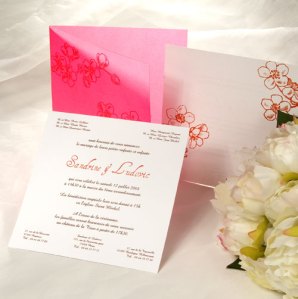


People in contemporary societies have become so caught up in their complex lifestyles & engrossed in their individual pursuits that events like weddings have become a major chore. That is why professionals are now available for hire to attend to all the minute details needed to create the “perfect wedding” with all the essential trappings: the invitations, the cake, the music, the venue, the reception, the programme, the dresses, the rings, bouquet & flowers, the works… anything to make sure the nuptials go smoothly, without a hitch. Then of course, the idyllic honeymoon.












Oh if only romance… the passion… if only the couple would take care to keep this alive as they settle into domesticity. If only people could invest as much time & energy into their marriage the way they do to their careers and their dreams… here I go again, I stray and let my emotions betray me.
In terms of the definition of “marriage” I tend to focus on more anthropological approaches (pardon my professional bias):
Anthropologists have proposed several competing definitions of marriage so as to encompass the wide variety of marital practices observed across cultures. In his book The History of Human Marriage (1921), Edvard Westermarck defined marriage as “a more or less durable connection between male and female lasting beyond the mere act of propagation till after the birth of the offspring.”
In The Future of Marriage in Western Civilization (1936), he rejected his earlier definition, instead provisionally defining marriage as “a relation of one or more men to one or more women that is recognised by custom or law”. The anthropological handbook Notes and Queries (1951) defined marriage as “a union between a man and a woman such that children born to the woman are the recognized legitimate offspring of both partners.”
In recognition of a practice by the Nuer of Sudan allowing women to act as a husband in certain circumstances, Kathleen Gough suggested modifying this to “a woman and one or more other persons.” Edmund Leach criticized Gough’s definition for being too restrictive in terms of recognized legitimate offspring and suggested that marriage be viewed in terms of the different types of rights it serves to establish. Leach expanded the definition and proposed that “Marriage is a relationship established between a woman and one or more other persons, which provides that a child born to the woman under circumstances not prohibited by the rules of the relationship, is accorded full birth-status rights common to normal members of his society or social stratum.”
Leach argued that no one definition of marriage applied to all cultures. He offered a list of ten rights associated with marriage, including sexual monopoly and rights with respect to children, with specific rights differing across cultures. Duran Bell also criticized the legitimacy-based definition on the basis that some societies do not require marriage for legitimacy, arguing that in societies where illegitimacy means only that the mother is unmarried and has no other legal implications, a legitimacy-based definition of marriage is circular. He proposed defining marriage in terms of sexual access rights.
However one may define it, marriage implies some form of legally or socially recognized economic, sexual and emotional bond. Now you may or may not refute this… we can all go back to what our professors taught us in the classroom, but nothing… and I mean nothing I read from textbooks; nothing I learned from extensive research; nothing I computed based on statistical data; nothing I had ever come across in the vast library of knowledge has prepared me for the real thing… relationships, much less, marriage itself.

It seems that no matter how freely we enter into the bonds of matrimony, after fighting so hard for our right to choose our mate… nothing can guarantee the longevity of a marriage. People are different… but courtship and the engagement are supposed to settle or address those differences, especially the more important things like whether or not to have children, religion or lack thereof, residence, financial arrangements and so forth.
What then have we learned?
Separation – whether temporary or for the long-term, perhaps even leading to divorce, is both painful and traumatic. The scars of a failed marriage take a long time to heal. A wounded heart takes time to forgive and never forgets.

Sociological studies reveal that men usually suffer more, both physically and emotionally, from the loss of their mate – whether it be through separation / divorce or death. Widowers and divorced men have a much harder time coping with loneliness after having spent the greater part of their lives with a woman who, for better or worse, was there to attend to most, if not all, of their needs. It is said that most men who choose to remain alone after losing their wives usually die within five years after their mate.

Women, on the other hand, are more hesitant to find a new partner after separating from their spouse or becoming widowed. In spite of our belief that women have gained mileage when it comes to equality, the domestic scene has always been a little battlefield where they have to make compromises & sacrifices to win minor victories. Ask any married woman if she is a hundred per cent happy with her life. She will probably say “yes”, but not after a pregnant pause.


Marriages die, not when the man has given up. Men who stray or lose their feeling of connectedness to their spouse may begin the cycle of decay in a marriage if there is no communication. But the final blow is dealt when the woman surrenders. While the woman is willing to carry on and patch things up, work things out and compromise, even when the husband is hesitant… hope remains in the horizon. But when the wife gives up… the verdict has been read.
Here are some fast facts on marriage and divorce:
• People in contemporary societies are less inclined to marry.
• Those that do opt to marry tend to put it off later in their late twenties or early to mid-30’s.
• The procreative function has become secondary as people marry for a permanence in companionship rather than solely for the purpose of having children.
• The chances of commitment & permanence are better with marriage.
• Married couples are more economically stable, emotionally secure, have better sexual relations overall and well-defined functions & obligations that ensure mutual support in the long-term.
• There are fewer married households in the US – the pattern of decline in the number of married households has prevailed for years.
• The divorce rate per capita has fallen as well as a consequence of the preceding statement. This implies that the remaining “married” households may be more stable for raising children.
• People have ambivalent feelings towards the rise in the number of single parent households (usually female-headed) – some view it as a cause for alarm while others see it as having no impact on society in general. The economic consequences of single parenthood cannot be denied, however, especially when there is no support from the absentee parent.
• More than half of married individuals (men & women) confess to having had at least one extramarital affair during the course of their marriage.
• Common law marriage, which is allowed in some countries (e.g. Canada) is a better alternative to indefinitely “living in” – but certain stipulations have to be met for a couple to qualify for this type of legal recognition. Gay couples in some places are allowed to declare a state of “community partnership” to formally register their relationship with some legal rights & obligations involved, in cases where no legally binding marriage ceremony is available.
• Divorce cancels the legal duties and responsibilities of marriage and dissolves the bonds of matrimony between the parties. However, economic obligations to the former spouse (alimony) and offspring (child support) may remain depending upon the ruling of the court. 


A Broken Family A Blended Family
 Single Dad
Single Dad

Single Mom
Divorce splits up the couple or the whole family and leads to the prevalence of single parent households, hence the terms “single moms” and “single dads.”
However, some people who have been divorced do decide to remarry later on leading to the phenomenon of blended families where the husband and wife have children from their previous partnerships or unions. I will not discuss this at length since “family” in itself is a vast subject matter requiring its own report.
Now I am bereft of words…
I see a fabulous four-bedroom whitewashed house in the suburbs with a nicely landscaped garden, a two-car garage, a pond, birdbath, a half court & tree house for the kids, and of course – the white picket fences. That is the Western version of our dreams of “happily ever after” with The One.

Back home in the Philippines, our vision of the happy couple is more or less the same, thanks to the appeal created by real estate company advertisements showcasing that beautiful suburban dream house by the sea, with husband and wife frolicking in the beach with the kids, with a pet or two thrown in to complete the image. Sigh. How nice it must be to have all that. Straightforward, pure & simple. So unlike life.
I want to share the words of Sir Anthony Giddens in his BBC 1999 Reith Lectures (Family):
In conclusion, I should emphasize that sexual equality is not just a core principle of democracy. It is also relevant to happiness and fulfillment.
Many of the changes happening to the family are problematic and difficult. But surveys in the US and Europe show that few want to go back to traditional male and female roles, much less to legally defined inequality.
If ever I were tempted to think that the traditional family might be best after all, I remember what my great aunt said. She must have had one of the longest marriages of anyone. She married young, and was with her husband for over 60 years. She once confided to me that she had been deeply unhappy with him the whole of that time. In her day there was no escape.
Should we do away with tradition in human relationships then – that is, including couple-hood, marriage and the family? In truth, I am still in tenterhooks when it comes to this question. There is so much more to learn and understand. To take a purist view – for convention or modernity – would not be wise… in my humble opinion.
Left to my own devices, I tend to look inward and wonder… am I, in reality, commitment-phobic? Usually, a month into a relationship, with all the deadlines (self-imposed & external – both for personal & professional projects) I usually face, I sigh and wonder if I really have time to nurture a full-blown relationship. There is so much I have set out to do and so little time.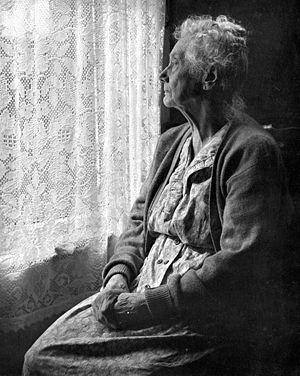 Yet visions of me as a lonely old woman staring out into the ocean – wanting to plunge myself into its depths – one final act of despair & control over my destiny for one last time… such images haunt me in my darker days.
Yet visions of me as a lonely old woman staring out into the ocean – wanting to plunge myself into its depths – one final act of despair & control over my destiny for one last time… such images haunt me in my darker days.

There are times when I am nonchalant. I just shrug and say I will end up a missionary in one of the far-flung regions of the earth, an environmental activist, or peacefully gardening in a compound I share with my single female friends – happily bickering every once in a while, laughing over the travails of our youth… reminiscing about how we lived, ah… how we all lived!

I yearn for freedom yet still want a man beside me, to get to know me… see how strong & weak I can be… and still remain at my side. A man who will inspire me to move forward… a man I will admire & respect and want to share the rest of my life with. 
Sometimes I imagine myself growing old with The One… finally. He who loves me in spite of my flaws. He who is willing to see beyond my scarred life. He who will stand by me even when I am my meanest self. He who will always believe in me & my dreams even when the rest of the world holds me in ridicule & disdain.
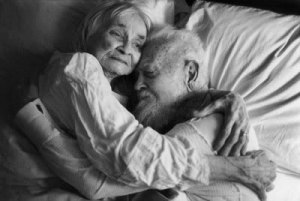
The One – him whom I will love many times over… the one I will search for till I reach the world’s end.
Ah, yes, I am hopeless indeed! 
Yes, I do declare… I am a modern woman with liberal views haunted by my fanciful yearning for a fairy tale ending with my knight in rusty armor. 🙂
*****************
References I used that you might want to check out for yourself
Cohabitation – http://www.faculty.rsu.edu/~felwell/Probweb/Presentations/cohabit.html Cohabitation (PowerPoint Presentation) – http://www2.gsu.edu/~wwwche/cohabitation.ppt#270,3,Background Leading to the Problem
Cohabitation before marriage by Joseph Champlin – http://www.americancatholic.org/Newsletters/CU/ac0603.asp
Cohabitation: Issues That Affect Intimacy- http://psychcentral.com/lib/2008/cohabitation-issues-that-affect-intimacy/
Cohabitation: The marriage enemy- http://www.usatoday.com/news/opinion/columnists/lovemarriage/love4.htm
Cohabitation – Trends and Patterns, Reasons For Cohabitation, Meanings Of Cohabitation, Consequences Of Cohabitation, Conclusion – http://marriageandfamilies.byu.edu/issues/2001/January/cohabitation.htm
Cohabiting Couples Not Likely to Marry, Study Finds – http://researchnews.osu.edu/archive/cohabit.htm
Cohabitation Facts and Statistics By Sheri & Bob Stritof, About.com Guide – http://marriage.about.com/od/cohabitation/qt/cohabfacts.htm
Confessions of a Female Chauvinist Sow, Anne Roiphe, 1972
Definitions of Kinship & Postmodernism from Wikipedia – http://en.wikipedia.org/wiki/Kinship / http://en.wikipedia.org/wiki/Postmodernism
Family and Intimate Relationships: A Review of the Sociological Research by Val Gillies, South Bank University 2003
Family and Social Structure: The Changing Functions of the Family – http://www.blacksacademy.net/content/3274.html
Is marriage an outdated institution? – http://news.bbc.co.uk/2/hi/talking_point/452257.stm
Living together: Sociologist studies facts, myths about ‘living in sin’ By Diane Swanbrow, News and Information Services – http://www.ur.umich.edu/9900/Feb14_00/6.htm
Marriage Breakdown and Family Structure in Ireland – http://www.irishchurches.org/files/Sep07MarriageBreakdownMaps.pdf
Marriage decline reflects social change, The Daily Orange – http://www.dailyorange.com/2.8654/marriage-decline-reflects-social-change-1.1236226
On Becoming Male, James M. Henslin, Down to Earth Sociology 14th Ed. (also in earlier editions of the same book)
Runaway World: BBC Reith Lectures (Lecture 4, Washington DC: Family) 1999 by Sir Anthony Giddens – http://news.bbc.co.uk/hi/english/static/events/reith_99/week4/week4.htm
Research looks at cohabitation’s negative effects By William Harms, News Office – http://chronicle.uchicago.edu/000302/cohabit.shtml
Sociological reasons not to live together – from All About Cohabiting Before Marriage – http://www.leaderu.com/critical/cohabitation-socio.html
Sociology by John J. Macionis (all editions)
Strengthening the Family – Implications for International Development, Marian F. Zeitlin, Ratna Megawangi, Ellen M. Kramer, Nancy D. Colletta, E.D. Babatunde, and David Garman, 1995 – http://unu.edu/unupress/unupbooks/uu13se/uu13se00.htm
The Facts Behind Cohabitation – http://www.civitas.org.uk/hwu/cohabitation.pdf
The family basis of social structure by Edward Goldsmith – http://www.edwardgoldsmith.org/page61.html
The Traditional Family is Disappearing by Edna McNicholas, Empire State College – http://www.esc.edu/esconline/across_esc/writerscomplex.nsf/0/9526310C1C96BD80852569EE00551A86
The Verdict: Cohabitation vs. Marriage – http://marriageandfamilies.byu.edu/issues/2001/January/cohabitation.htm  Happy families are all alike; every unhappy family is unhappy in its own way.
Happy families are all alike; every unhappy family is unhappy in its own way.
by Count Lyev Nikolayevich Tolstoy
© Lovely Claire Dangalan, 2011
Running on Empty & Out of Touch
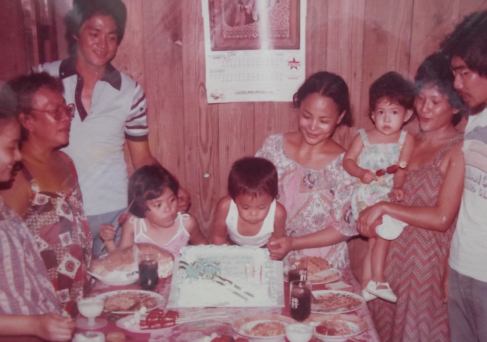 My most favorite birthday picture ever… my brother Tong-Tong’s birthday… yup, am the one drooling next to him holding a hotdog-on-a-stick
My most favorite birthday picture ever… my brother Tong-Tong’s birthday… yup, am the one drooling next to him holding a hotdog-on-a-stick 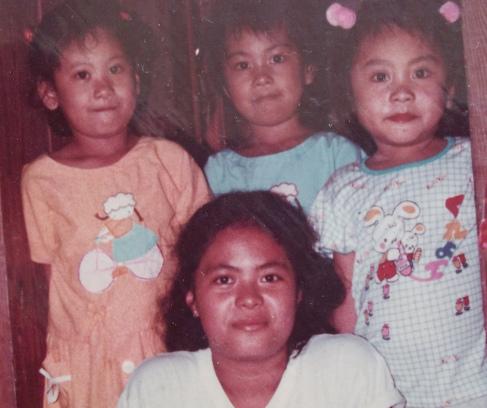 My cousins Alma, Dulce, Din-din and myself
My cousins Alma, Dulce, Din-din and myself 



















